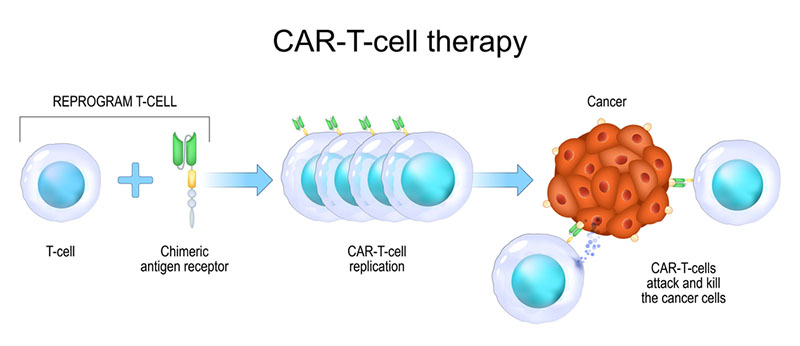
CAR T-cell therapy is a revolutionary new cancer treatment that involves genetically modifying a patient's own T cells to fight cancer. The therapy is highly effective against certain types of blood cancers, but it is also very expensive.
The cost of CAR T-cell therapy varies around the world, depending on a number of factors, including the country where the treatment is received, the type of CAR T-cell therapy used, and the patient's individual circumstances.
Here is a comparison of the average cost of CAR-T in different countries:
| Country | Cost of CAR-T |
|---|---|
| United States of America | $373,000-$475,000 |
| Canada | $390,000-$550,000 |
| United Kingdom | £282,000-£450,000 |
| Germany | €300,000-€400,000 |
| Spain | €250,000-€370,000 |
| Israel | $100,000-$550,000 |
| China | $150,000-$450,000 |
It is important to note that these are just averages, and the actual cost of CAR T-cell therapy may vary depending on the individual factors mentioned above.
Why are CAR T cells so expensive?
There are a number of reasons why CAR T-cell therapy is so expensive. First, the manufacturing process for CAR T cells is complex and time-consuming. Second, CAR T-cell therapy is a personalized treatment, meaning that each patient's T cells must be individually modified. Third, CAR T-cell therapy is a relatively new treatment, and the research and development costs are still high. How much does CAR T-cell therapy cost in other countries? The cost of CAR T-cell therapy varies widely around the world. In general, CAR T-cell therapy is more expensive in developed countries than in developing countries. However, there is also significant variation in the cost of CAR T-cell therapy within developed countries.
The rise of in-house /Home Grown/ point of Care CAR-T
The high costs of commercial CAR-T treatments have prompted hospitals worldwide to develop their own in-house CAR-T programs, aiming to make this innovative treatment more accessible for patients.
In-house CAR T-cell therapy represents a fresh and innovative approach to CAR T-cell therapy, with numerous hospitals and research institutions in Israel at the forefront. This method involves producing CAR T cells directly at the hospital where the patient receives treatment. By doing so, there's no need to transport the patient's T cells to a centralized manufacturing facility, resulting in both time and cost savings.
By rendering CAR T-cell therapy more affordable and readily available, in-house CAR T-cell therapy has the potential to enhance the quality of life for patients globally.








